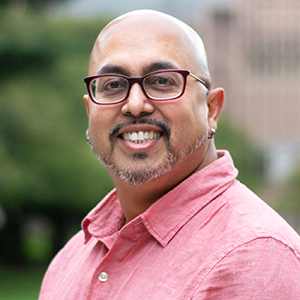
Like many of you, I have been glued to the news as protests swept across the country in response to repeated police violence. Amidst a pandemic and an economic crisis, I couldn’t have imagined we would be dealing with a crisis of race as well, and yet here we are, in a crisis of crises.
The names George Floyd, Ahmaud Arbery and Breonna Taylor are now part of an ongoing American tragedy, a long list of Black people’s lives ended too soon at the hands of police. Ten days after Floyd’s death set off protests across the country, a recording surfaced of another Black man saying “I can’t breathe” as he died in police custody. That man, Manuel Ellis, died March 3 in Tacoma, a local reminder of just how pervasive these problems are. This, after Eric Garner was killed by police in 2014, saying the same phrase 11 times while being restrained.
The scenes in our cities have been at once heartbreaking and inspiring. With each day last week there was another outrage caught on video, and each day people have filled the streets in response, peacefully standing up for their rights. As a country, we are having the difficult conversations about race and policing that are long overdue, and I believe we are finally on the cusp of lasting, positive change.
While we can’t wave a magic wand and solve the nation’s problems, I truly believe higher education and particularly institutions such as the iSchool must play a role. Whether through education, public outreach, research impact or influence on public policy, our work utilizes the power of information to improve people’s lives. In recent months, iSchool faculty and students have done work that helps underserved and underrepresented people in numerous ways.
For example, research from the iSchool and the eScience Institute factored into a change to state law that requires tenants to be given more time to respond to an eviction notice, increasing the minimum from three to 14 days. Data-driven research from Associate Professor Bill Howe and Lecturer Ott Toomet helped convince lawmakers to change a law that disproportionately cost women and minorities their homes.
The Center for an Informed Public is another visible sign of the impact we're having on the national discourse. As the public conversations over COVID-19 and police violence have turned political, people have retreated into their curated information bubbles, where they only hear what they want to hear and we no longer operate from a shared set of facts. CIP researchers have already been vocal in the national and global media, pointing out the ways in which these bubbles are full of misinformation and, at times, don’t match reality. By exposing people to better information and a wider set of viewpoints, we can break through those bubbles and help both individuals and institutions make better decisions.
Another way we are doing that is by educating diverse, ethically aware professionals who are working to make this a better, more just world. Our sense of purpose is deeply rooted in the school’s history in librarianship and what sets us apart from most technology departments. In courses such as Assistant Professor Alexis Hiniker’s “Designing for Evil,” future tech professionals at the iSchool learn where technology designers go wrong and how to create systems that serve the greater good. That’s just one example of what’s become a point of pride for me: Nobody graduates from the iSchool without being educated in both ethics and the need to focus on social justice.
Sometimes our impact happens face-to-face, with iSchool faculty and students providing services to people who most need them. Professor Michelle Martin’s Read-a-Rama is an educational effort, but it’s much more; she’s helping diverse groups of children understand that they have a voice and should use it. From our students, I was excited to hear a recent dissertation proposal from Ph.D. candidate Katya Yefimova, who is looking at the role of public libraries as safe havens for refugee communities, where they go to learn about what it’s like to live in King County and the United States, and gaining the skills to do so. And our student groups are full of leaders who are committed to bringing more women, people of color and LGBTQ representation into their fields.
We’re working toward equity for another underserved population with the launch of CREATE, the Center for Research and Education on Accessible Technology and Experiences. iSchool Professor Jacob O. Wobbrock is a founding co-director of CREATE, which brings together many of the leading researchers in the field of accessible technology for people with disabilities. This center is a true cross-campus partnership with faculty from Human Centered Design & Engineering, Mechanical Engineering, the Allen School and other UW units coming together to do work that will have a positive impact on many people whose needs are often forgotten. CREATE is the culmination of two decades of work by the researchers involved, and support from Microsoft and others will only magnify their impact.
These are just a few examples, but all around the school, faculty and students are working to empower people with information and make a positive change in the world. This has been such a difficult year, but when times are hard, I find resilience by looking at the work going on around me and thinking about what it will mean for our futures. There’s nothing I’d rather be doing.
Anind K. Dey
Dean and Professor
June 2020